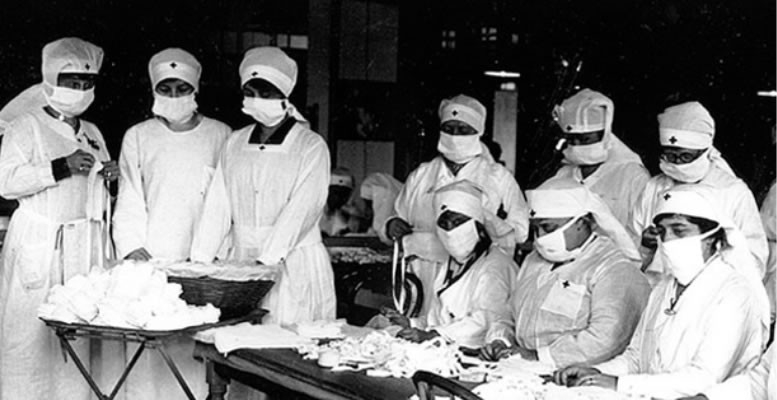Created by a “novel” or new virus, the COVID-19 pandemic is both a unique situation for today’s healthcare workers but also one that echoes previous global events.
Past lessons
For more than a decade, when it came to the virus section of her microbiology class, West Coast University-Ontario professor Valencia Williams would talk about HIV — the human immunodeficiency virus.
First identified in the early 1980s, HIV — which attacks the human immune system and can cause the acquired immunodeficiency syndrome (AIDS) — has led to the deaths of more than 35 million people worldwide due to AIDS-related illnesses. At its peak in the late-1990s, more than 150,000 new AIDS cases a year were reported in the U.S. alone.
For Williams, who has taken part in the CDC Science Ambassador Fellowship for multiple years, the HIV example held several key lessons, including how scientists first identified the virus and its methods of spread, the work done in testing and containment and, lastly, the attempts to eradicate it via awareness and education.
“A lot of the things we talk about in microbiology are transmission, public health and preventive measures,” Williams said. “In medicine, you’re focused on treating someone who already had the illness. In public health, we’re trying to prevent people from being infected in the first place.”
To illustrate her point, Williams said she often begins her microbiology class with a “scared straight” message on viruses, emphasizing the importance of handwashing and following recommended guidelines.
Since the COVID-19 outbreak, however, Williams hasn’t had to use that warning.
“I would give a welcome lecture where I tried to turn the students into germaphobes, just to have that buy-in as to why this subject is important — not just for your nursing practice but also from a personal standpoint,” Williams said. “The coronavirus pandemic has helped me tremendously because now the students have already bought into the course and what they’re going to learn.”
Influenza vs. COVID-19
As of June 2020, more than 374,000 people worldwide — including 106,000 in the United States have died from COVID-19, according to the World Health Organization.
Just a 100 years ago, the world was dealing with its deadliest modern outbreak — the influenza (H1N1) pandemic of 1918, which killed an estimated 50 million people worldwide and about 675,000 in the United States. Less than 50 years later, a new influenza — or “flu”— virus emerged, causing 1.1 million deaths globally, including about 116,000 in the U.S. The final pandemic of the 20th century occurred in 1968 when the H3N2 influenza virus triggered another outbreak, resulting in roughly 100,000 deaths in the U.S. and 1 million worldwide.
And while the flu and COVID-19 may present similar symptoms, Williams said, the actual viruses themselves share little in common.
“If you’re comparing pandemics, the first thing to know is H1N1 is not COVID-19, despite both patients dealing with respiratory problems. These are two different virus families and genetically they are very different from each other,” Williams said.
A Pandemic for the 21st Century
Discovered in 1961, the coronavirus family is named for the crown-like spikes on their surface. Besides causing most types of the common cold, coronaviruses are also responsible for Middle East Respiratory Syndrome (MERS) and Severe Acute Respiratory Syndrome (SARS). The actual virus that causes COVID-19 is called SARS-CoV-2.
Additionally, Williams said, viruses like the swine flu, avian flu, Ebola and Zika have all had a role in shaping global pandemic responses and protocols.
“We have been in pandemics before and endured times where the medical advancements we have today did not exist,” Williams said. “So, if our ancestors made it through those times, we definitely will in this day and age where we do have amazing technology, where we do have the medical advancements, when we do have the ability to get the message out in a much faster and safer way than they did. It’s just about everyone playing their part.”
WCU provides career guidance and assistance but cannot guarantee employment. The views and opinions expressed are those of the individuals and do not necessarily reflect the beliefs or position of the school or of any instructor or student.



